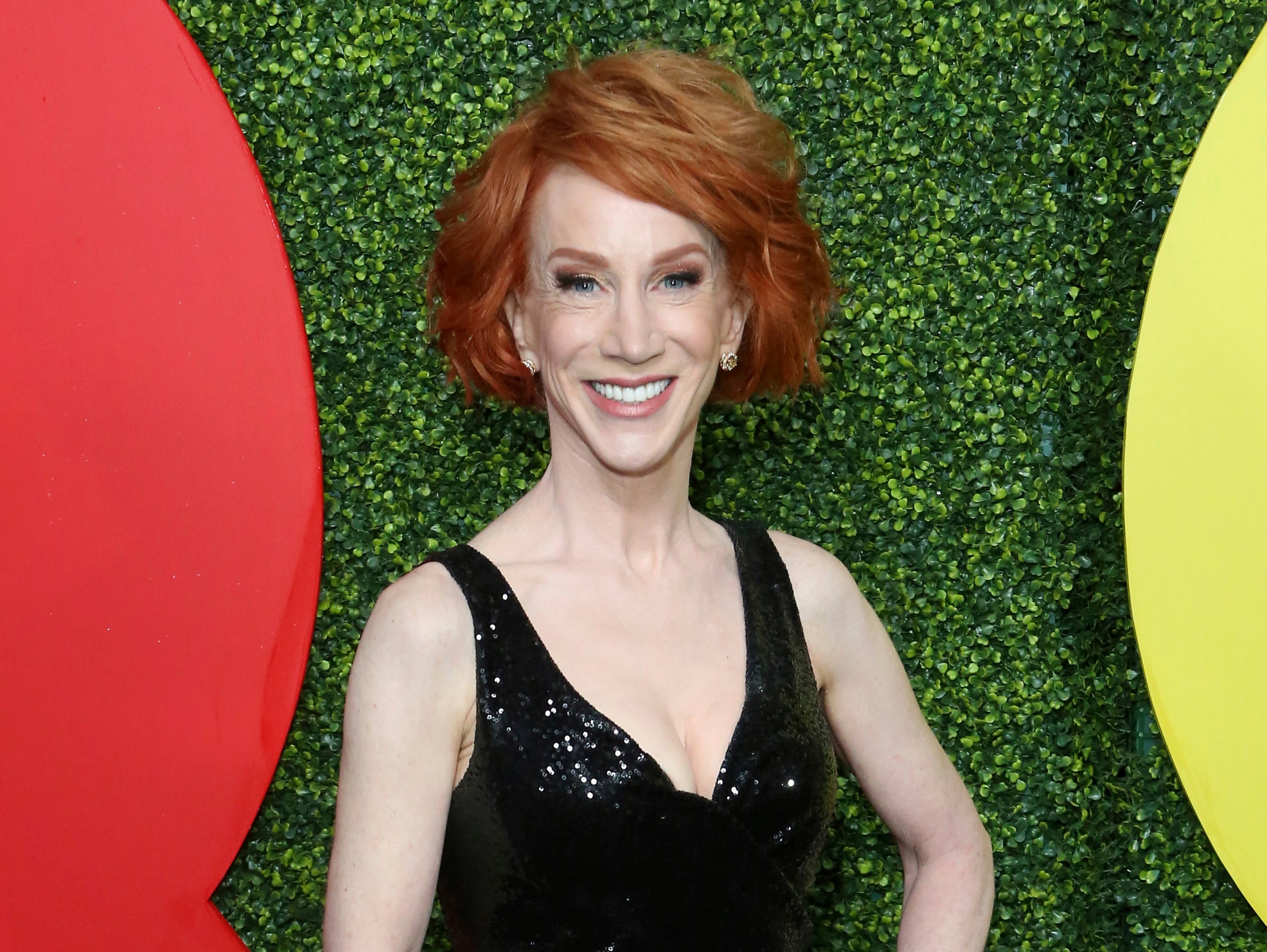As a cancer survivor, Kathy Griffin’s overly positive statement just made me sad
Sick people shouldn’t have to put on a brave face; they need brave people

Your support helps us to tell the story
From reproductive rights to climate change to Big Tech, The Independent is on the ground when the story is developing. Whether it's investigating the financials of Elon Musk's pro-Trump PAC or producing our latest documentary, 'The A Word', which shines a light on the American women fighting for reproductive rights, we know how important it is to parse out the facts from the messaging.
At such a critical moment in US history, we need reporters on the ground. Your donation allows us to keep sending journalists to speak to both sides of the story.
The Independent is trusted by Americans across the entire political spectrum. And unlike many other quality news outlets, we choose not to lock Americans out of our reporting and analysis with paywalls. We believe quality journalism should be available to everyone, paid for by those who can afford it.
Your support makes all the difference.While optimistic and courageous, Kathy Griffin’s Instagram post announcing her lung cancer is the perfect example of the pressure sick people face to uplift those around them. In her message this week — which was filled with upbeat vibes and exclamation points — Griffin stated she needs to get half of her left lung removed due to a cancerous tumor. She reassured everyone that she was going to be “just fine” and thoughtfully advised the general public to get regular “medical check ups.”
Sharing scary health news creates an understandable uneasiness in others and we, the ill, often try to offset this by radiating the only socially acceptable emotion: positivity.
Griffin’s message is all too familiar to me. When I was diagnosed with my first brain tumor at age 20, I mass-emailed my classmates and relatives to not fret because I’d gotten “the Prada of all brain tumors!” since it required minimal treatment and no surgery. At 32, I learned I had a second, unrelated brain lesion that needed removal. “My brain tumor got a boyfriend before I did!” was how I relayed this new, scary diagnosis. “There’s an impending breakup with just a little brain surgery. No biggie — I’ll be back to normal in two months!”
But I never made it “back.” Following the operation and during my unexpected radiation treatment, I was diagnosed with epilepsy. Somewhere in the midst of the exhaustion from radiation and the plethora of energy-draining anti-epileptic drugs, I stopped trying to make others feel better about my condition. “I don’t know how you’re awake right now,” my doctor said, after reviewing my list of medications. I stared at the dwindling toilet paper roll in my bathroom, dreading when I’d have to change it because I didn’t know where I’d find the energy.
Thus started the journey of learning not to bear the responsibility of comforting others when I’m suffering. By rejecting the socially and self-inflicted pressure to ease everyone else’s anxieties, I found freedom in accepting the weight of my illnesses and letting people in my world step up to comfort and care for me.
My friends came through. Andrew picked up my prescriptions and drove me to radiation. Natalie visited the ER every time I needed treatment for incision infections from my surgery. Beth came over once a week to “hang out,” and it wasn’t until years later I realized she was actually checking in on me without making me feel like a burden.
“The most important thing that I have seen is to identify supportive people who can help you but don’t add stress,” states epileptologist Dr Rachel Kuperman. As painful as it was to let go of loved ones who insisted I “stay positive,” it was a necessary step in self-care to surround myself with those who are comfortable with my suffering. While they’re not removed from my life completely, the others are not welcome in this aspect of it.
“The pressure to stay positive comes across from most folks and society,” says Dr Margie Sieka, PhD, LCPC, manager of behavioral health at Northwestern Medicine Central DuPage Hospital, who understands this pressure firsthand as a breast cancer survivor. “What stands out in terms of how it affects people is feeling invalidated: that they shouldn’t feel the emotions that they’re experiencing and that they’re wrong in some way for feeling them. We know there is isolation, sadness, frustration, and we have the right to feel those feelings and be authentic in our lives.”
Embracing vulnerability with my chosen support system allowed me to have closer friendships. After telling me about a bad date, my friend Mike quickly apologized, saying he shouldn’t complain about something so small while I was recovering. I appreciated his acknowledgement, but responded, “So bad dates are awesome now because I had brain surgery?” We laughed and it felt good to be needed for relationship advice.
Such reciprocal caring in our relationships helps with healing and overall well-being. “Chronic illnesses, such as migraine, can be improved by structured programs where patients, as able, nurture plants, animals, and other people as an empowering means to improve neurological health,” according to migraine specialist Dr Richard Kraig of the University of Chicago.
In the last four years, I’ve fortunately improved and require less caretaking. My seizure frequency has declined and my energy levels have increased. and now I can change the toilet paper without a sense of dread.
Yet my illness requires me to continue to lean on others. Andrew still picks up my prescriptions from time to time, Beth texts daily to check in on how I’m feeling, and Mike needs more dating advice. There’s no reason to wear a brave face. I hope Kathy Griffin can also lean on brave people who can handle the truth.
Join our commenting forum
Join thought-provoking conversations, follow other Independent readers and see their replies
Comments